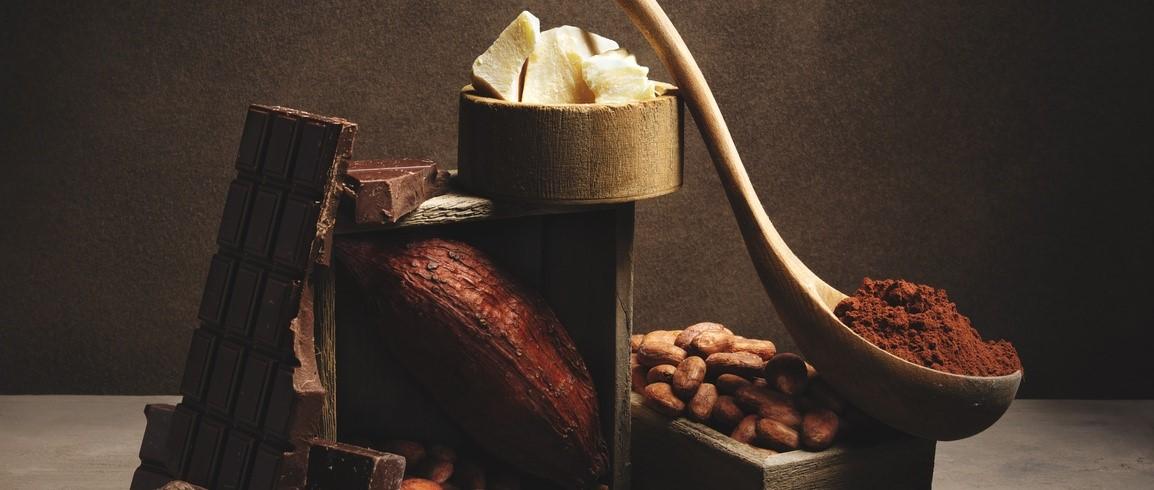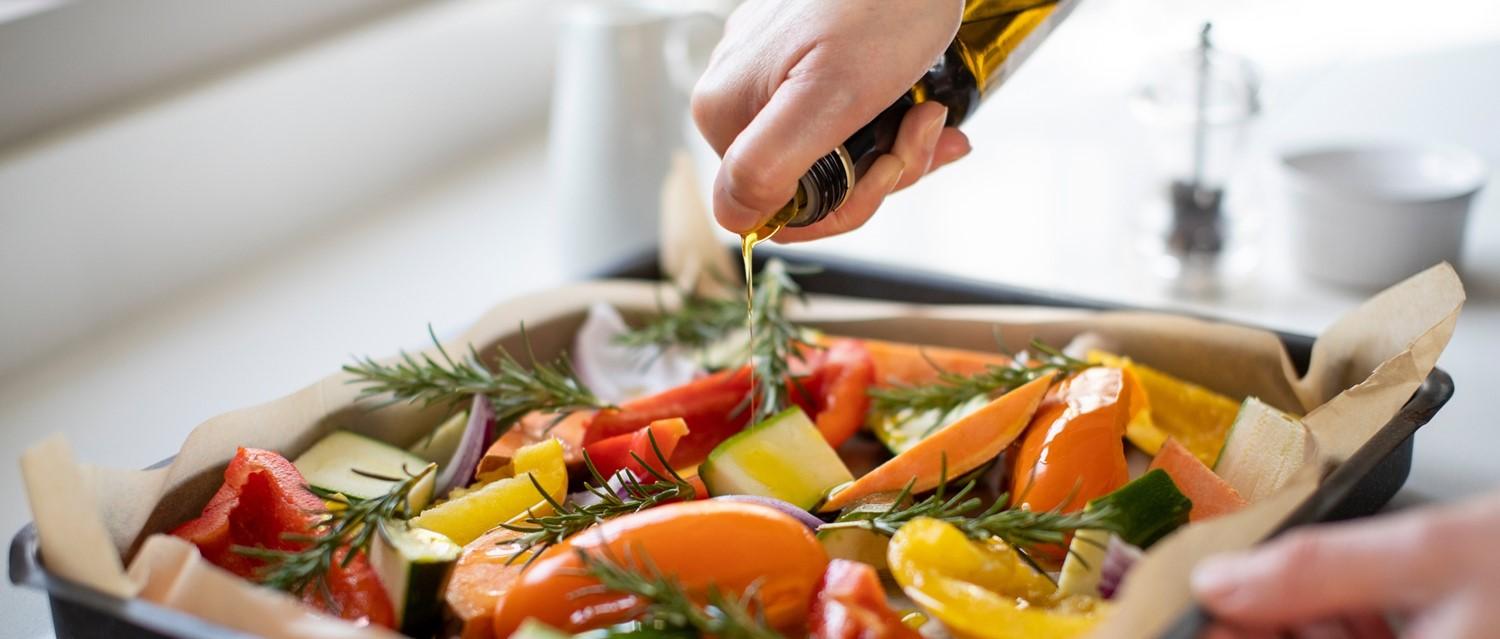
7 cacao benefits: is raw chocolate best?
Peer reviewed by Dr Krishna Vakharia, MRCGPLast updated by Amberley DavisLast updated 13 Feb 2024
Meets Patient’s editorial guidelines
- DownloadDownload
- Share
- Language
- Discussion
It's Easter shopping season, and we'll explore the growing trend for cacao chocolate products, the potential health benefits, and why eating in moderation is important. Because when it comes to your health, not all chocolate is created equal.
In this article:
Continue reading below
Is cacao just chocolate?
Some chocolate packages list cacao as a key ingredient, while others list cocoa. These ingredients aren't the same - but they are both part of the chocolate family.
We get chocolate from the cacao tree, which contains brown seeds called cacao beans. Cacao is the purest form of chocolate - the raw material we then process to make cocoa powder, through roasting and grinding, and to make chocolate, by adding ingredients such as sugar, milk, and vanilla.
These extra ingredients give chocolate its sweet and creamy taste. In contrast, raw cacao powder can be added to processed chocolate to create bitter and rich tones. The darker the chocolate, the higher the cacao content.
Cacao and cocoa - what's the difference?
Cocoa powder is a cacao product that has been heated. They are similar products containing many of the same minerals - and associated health benefits - but heating does slightly alter cocoa's nutritional profile.
As a general rule, raw and minimally processed cacao products - such as raw cacao powder and cacao nibs - have a higher concentration of nutrients and antioxidants than cocoa. Cacao also has less sugar, but a higher calorie content from fat.
Package labelling confusion
If the similar spellings of cacao and cocoa aren't enough to confuse you, the inconsistent use of these terms by brands might be. Some chocolate brands take cacao and cocoa to mean the same thing, so it's not always viable to compare product ingredients. Your best bet for trying cacao in its most beneficial form is to opt for a minimally processed cacao health product.
London-based dietitian Reema Patel shares her favourites below, and offers her expertise on cacao benefits.
Continue reading below
Health benefits of cacao
Cacao is rich in minerals that can support your health, but keep in mind that your favourite store-bought chocolate bar is unlikely to deliver the full cacao benefits. Patel explains:
"The research is specific to cacao itself - not chocolate. However, we consume cacao powder usually in the form of chocolate, which has added fats and sugars. These less healthy ingredients may take away from some of the health benefits of cacao."
1. Cacao benefits for high blood pressure
According to Patel, cacao powder is a great source of flavonoids - sometimes called flavanols - which have antioxidant and anti-inflammatory properties.
Studies suggest that flavanol-rich cacao and cocoa products may help lower blood pressure1. However, in studies the observed drop in blood pressure has been small, and the quality of existing evidence is moderate - meaning more trials are needed.
2. Cacao benefits for blood clots
Flavanol-rich cacao powder also has blood thinning properties. It does this by slowing down platelet clumping - where blood cells stick together in clusters that can eventually form dangerous blood clots. In turn, this supports heart health and reduces your chance of cardiovascular diseases, such as stroke and heart attack2.
3. Cacao benefits for type 2 diabetes
"There is some research to show flavonoids in cacao can also improve your sensitivity to insulin, which in turn can reduce your risk of developing type 2 diabetes," says Patel.
Cacao-rich chocolate does this by3:
Reducing post-meal spikes in blood sugar levels - called blood glucose.
Increasing the hormone insulin, which helps regulate blood sugar.
Improving overall post-meal blood sugar control.
4. Cacao benefits for inflammatory conditions
Cacao powder is rich in potassium which, along with flavonoids, can help reduce inflammation. This is an immune system response triggered by irritants that can put stress on your cells in the long-term, eventually impacting your body's ability to protect itself and function properly.
By fighting inflammation, potassium can decrease your risk of inflammatory diseases4, including stroke and heart disease.
5. Cacao benefits for DNA damage
"Foods rich in antioxidants, like cacao and cocoa, help to protect against DNA damage", says Patel. By neutralising unstable atoms that damage cells - known as free radicals - antioxidants supply several benefits, ranging from anti-ageing to cancer-prevention.
Raw cacao powder has some of the highest concentration of antioxidants of any food, including goji berries, blueberries, and red wine. Studies have shown that diets containing cacao-rich darker, healthy chocolate can stop the spread of colon5, lung6, and prostate7 cancer.
6. Cacao benefits for brain health
Improved cognitive function, or in other words a healthy working brain, is one of the recently studied benefits of cacao. Research looking at dark chocolate and other high concentrations of cacao has found that consuming cacao and cocoa flavanols can improve attention span, time taken to complete tasks, and verbal fluency8.
7. Cacao benefits for general nutrition
When it comes to the nutritional cacao benefits, a little goes a long way. Raw cacao powder is loaded with health-boosting minerals, including zinc, magnesium, iron, phosphorus, copper, and manganese.
These naturally occurring compounds are needed for hundreds of chemical reactions and functions in your body, supporting healthy bones, digestion, blood flow, oxygen supply, among many other important jobs. Cacao is also a good source of macronutrients - the nutrients we need in larger doses - such as protein, fibre, and healthy fats.
Cacao in moderation
Having a high concentration of powerful antioxidants and minerals also means you don't need to eat lots to reap the benefits of cacao. In fact, Patel explains why this may not be a wise idea:
"Cacao is also a source of caffeine and theobromine - another stimulant like caffeine - so moderation is important, and it may not be suitable at all for people who are sensitive to caffeine. Side effects can include anxiety, trouble with sleep, and heartburn."
What about dark chocolate?
Whether you're adding raw cacao powder to meals or consuming it in your favourite chocolatey treat also matters.
"Both cacao and dark chocolate have a high level of antioxidants and flavonoids," says Patel. “Cacao powder on its own contains minimal sugar and is often not processed to the degree of dark chocolate. But when it's combined with sugar and fat to make dark chocolate, this can take away from some of the health benefits."
This isn't to say that dark chocolate fans can't also enjoy the benefits of cacao - just that it's important to watch your sugar and fat intake by not having too much. It's also about how dark you go. The higher percentage, more bitter dark chocolates may be an acquired taste but one study found that daily consumption of 85% dark chocolate significantly boosted healthy gut bacteria when compared to 70% dark chocolate9.
"A good quality dark chocolate can be a delicious and nutritious food to include in your diet." The dietitian adds "We would recommend including both cacao and dark chocolate in your diet every now and then, if it is something you enjoy."
Continue reading below
Where to buy cacao
To purchase cacao in a minimally processed form, raw cacao powder and cacao nibs are the most popular choices. Although bitter in taste, many people enjoy sprinkling on meals, as part of a healthy diet.
In the UK, these cacao health products are widely available online, in superstores like Tesco and Waitrose, and in specialist health stores like Holland & Barrett. Prices vary but start at around £2.50.
Patel: my favourite cacao products
I use the Sevenhills Wholefoods organic cacao powder to add a chocolatey flavour to smoothies and porridge bowls, without added sugar. A little goes a long way, due to its bitter taste.
You can also buy breakfast toppers such as the Naturya super boost breakfast cacao, which is a mix of organic cacao nibs, seeds, dried fruit, and coconut. This can make a great topper for cereals, smoothies, or porridge.
Further reading
National Institutes of Health: How too little potassium may contribute to cardiovascular disease.
Martín et al: Preventive effects of cocoa and cocoa antioxidants in colon cancer.
Martin and ramos: Impact of cocoa flavanols on human health.
benefits
Patient picks for Nutrition

Diet and nutrition
Dietitians, nutritionists and nutritional therapists: what is the difference?
The titles dietitian (also 'dietician'), nutritionist and nutritional therapist can sometimes be very confusing. Although the titles may have similar meanings, there are many important key differences between each type of nutrition expert.
by Karine Patel, RD

Diet and nutrition
Beyond the grape: uncorking the health facts about resveratrol
Red grapes have a secret weapon that protects them from disease - resveratrol. Could it do the same for you? Found mostly in the skin of red grapes, this natural compound is hailed by some as holding the key to good health. But is it really worth the excitement? Read on to find out more.
by Victoria Raw
Continue reading below
Article history
The information on this page is peer reviewed by qualified clinicians.
13 Feb 2024 | Latest version
11 Apr 2023 | Originally published
Authored by:
Amberley Davis

Ask, share, connect.
Browse discussions, ask questions, and share experiences across hundreds of health topics.

Feeling unwell?
Assess your symptoms online for free
Sign up to the Patient newsletter
Your weekly dose of clear, trustworthy health advice - written to help you feel informed, confident and in control.
By subscribing you accept our Privacy Policy. You can unsubscribe at any time. We never sell your data.